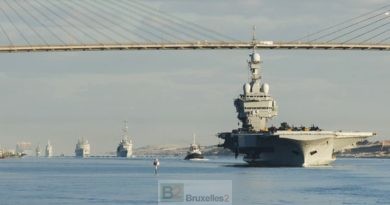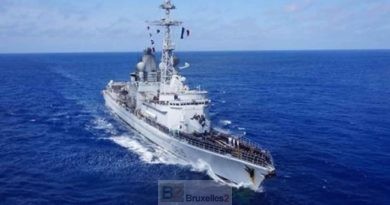EUTM Somalia starts (6). Interview with General Wamala (UPDF)

(BRUSSELS2) Lieutenant General Katumba Wamala - whom I was able to meet in Kampala - commands the Ugandan land forces (of the UPDF). And his conviction in the interest of a training mission for Somali soldiers is unshakable.
• The Ugandan army has in the past trained Somali soldiers. You start a new session, this time with the Europeans. Why did you use this “joint training” formula?
The idea is welcome. And it can give a better result, in several ways. First of all, we benefit from the knowledge of European training teams, who really have real expertise in certain areas. It is important. In the past, we have already trained recruits to become soldiers. But, on the ground in Mogadishu, we realized that the Somali army suffered from serious shortcomings in several sectors: at the medical level, communications, counter-IED (improvised explosive devices), etc. What the European team brings to the table is all that expertise. We will thus be able to train a complete unit: a unit with medical support, with good communicators, who can fight against IEDs, and so on. And for the UPDF, we will also have benefits, because by developing joint training, we share our skills.
But there is a plus: this mixed training has a more political meaning. The message is clear: the Somali problem is a problem that concerns all of us and must be solved by all. It is not only for Uganda, Burundi to solve it, or for the African Union alone, it is broader. It is said: everyone can and must contribute to the stability of Somalia. Because the stability of Somalia is part of the stability of all of us.
• Isn't it dangerous for Uganda to engage in this mission?
Everyone knows that Somalia is dangerous. And you would have to be blind not to see that this is one of the most dangerous parts of the world. But what can we do? Close eyes. If we do this, our behavior is incomprehensible. It's like when you are in the sun. It is not by closing your eyes that you are not exposed. The solution is there: the more we help Somalia, the less we will have to suffer from instability. A healthier Somalia is in our interest.
Look at Uganda, we are a landlocked country. We depend on the sea for our imports, our exports. If piracy continues, the situation will become untenable for trade, insurance will increase, products. To believe that the Somalia problem will solve itself, because it is too dangerous, is simply unrealistic. We must take the bull by the horns; and say yes: we need a positive Somalia and see together what we can do to replace the institutions.
• How do you see the future of Somalia?
There is no system that works in Somalia. It is typically a failed state. But the Somali population is really exhausted. The men and women of the street, I could read it on their faces, are tired of the war, really tired. I think the dynamics on the ground show that there is hope, that there is goodwill from the
population reacting positively. Because the proliferation of small arms does not exist. There are just a few people who hold guns, command gangs, and want to preserve their power through arms.
If you ask me if there is a chance for Somalia to get better, yes I believe it is possible. There is time for everything. But I think now is the time. People are ready. And that is exactly the challenge the government has today. People want the government to provide water, food. But the government cannot because it quite simply does not have the means and cannot manage to set up the necessary institutions. However, I am really optimistic about Somalia's ability to do better than in the 1980s.
• It's a first step today, this training with the Europeans, how do you see the other steps? other collaborations?
We already have a partnership with the United States for a long time on the subject. Another starts with the European Union now. And Uganda is, along with Burundi, engaged in the African Union peacekeeping mission. But security is just part of the problem. We must have a holistic approach to security: there is a need for a political approach, to build federal institutions.
If you tell me, is the security sufficient? I will tell you no. It is just a sign of the role we intend to play and the global approach we intend to have. The solution is not, in fact, solely in the hands of the military. Other actors must come: politicians must come, economists must come, humanitarian actors must come too, because there are major humanitarian needs on the ground. We need to synergize all our efforts.
(Nicolas Gros-Verheyde)


